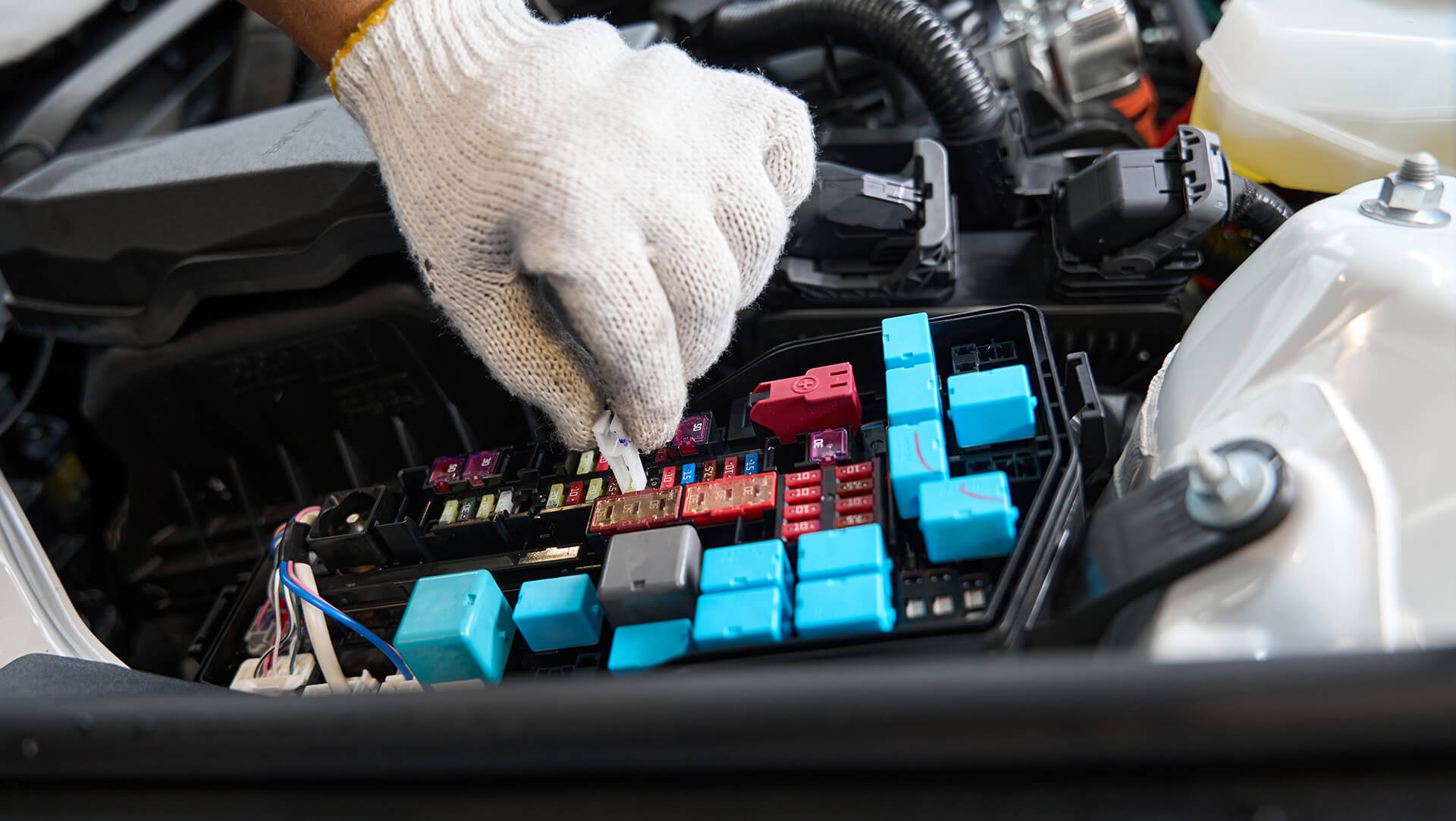
close-up-photo-of-male-checking-parts-of-automobil-2023-11-27-04-51-11-utc--1-.jpg
Posted on Wednesday, March 13, 2024
By:
david graber
Categories:
Kia
|
Buick
|
pontiac
|
chevrolet
|
ford
|
chrysler
|
dodge
|
honda
|
subaru
|
toyota
|
mazda
|
Vehicle Maintenance
The electrical system of a modern vehicle is akin to the nervous system in a human body—it controls almost everything, from igniting the engine to keeping passengers comfortable and safe. As cars evolve, their electrical systems have grown more complex, integrating advanced technology to improve performance, safety, and the overall driving experience. Understanding how these systems work, recognizing common electrical problems, and knowing when to seek professional help can save you time, money, and ensure your vehicle remains in top condition.
The Heart of the System: Battery, Alternator, and Starter
The electrical system's core components include the battery, alternator, and starter. The battery provides the necessary power to start the car and power electrical accessories when the engine is off. The alternator then takes over when the engine runs, charging the battery and powering the car's electrical systems. The starter, as the name suggests, uses the
electrical charge from the battery to start the engine. A failure in any of these components can lead to your vehicle not starting.
Circuits and Sensors: The Lifelines
Beyond these core components, modern vehicles are equipped with an intricate network of circuits, sensors, and controllers. These elements work together to monitor and manage every aspect of your vehicle's performance, from fuel injection and
emission controls to air conditioning and the infotainment system. Sensors collect data from various parts of the vehicle, which is then used by onboard computers to adjust operations, ensuring optimal performance and efficiency.
Common Electrical Problems
Even with advances in technology, electrical problems remain a common issue in modern vehicles. These can range from simple issues like dead batteries and blown fuses to more complex problems involving faulty wiring or malfunctioning
sensors. Symptoms of electrical problems include dimming headlights, erratic dashboard displays, frequent bulb replacements, and unexpected battery drain.
Dead Battery A dead battery is the most common electrical issue. Batteries have a limited lifespan, usually 3-5 years, and can fail due to age, poor maintenance, or leaving accessories on when the engine is off.
Faulty Alternator
A faulty alternator can lead to a dead battery or cause the electrical components in the car to operate erratically. Warning signs include dim or overly bright lights, a dead battery, or a battery warning light on the dashboard.
Wiring Issues
Over time, a vehicle's wiring can deteriorate or become damaged, leading to shorts, disconnections, or corrosion. Symptoms include flickering lights, non-operational accessories, or electrical components that work intermittently.
Sensor Failures
Modern vehicles rely heavily on sensors to operate efficiently. A failing sensor can trigger warning lights on the dashboard, cause the engine to run poorly, or affect fuel efficiency.
When to Seek Professional Help
While some electrical issues can be diagnosed and fixed with basic automotive knowledge, many require the expertise of a professional. If you encounter the following, it's time to visit a specialist:
- Persistent warning lights on your dashboard.
- Electrical components that stop working or behave erratically.
- The car does not start, or you experience frequent battery issues.
- Any burning smells or visible smoke, which could indicate a serious wiring problem.
ConclusionThe electrical system is vital for the operation and performance of modern vehicles. Understanding the basics of how this system works and recognizing the signs of common electrical problems can help you maintain your vehicle more effectively. However, due to the complexity of modern automotive electrical systems, seeking professional help when problems arise is often the best course of action. By staying informed and proactive, you can ensure that your vehicle remains reliable, safe, and enjoyable to drive for years to come.
Tagged:inspection, Kia, a/c, pa. state inspection, air condition, pa. emission testing, boyertown, gilbertsville, oley, douglassville, amity, pottstown, bally, barto, bechtelsville, car repairs, auto repair, car repair, auto repairs, West Chester, Limerick, Malvern, Battery, Break down, vehicle maintenance